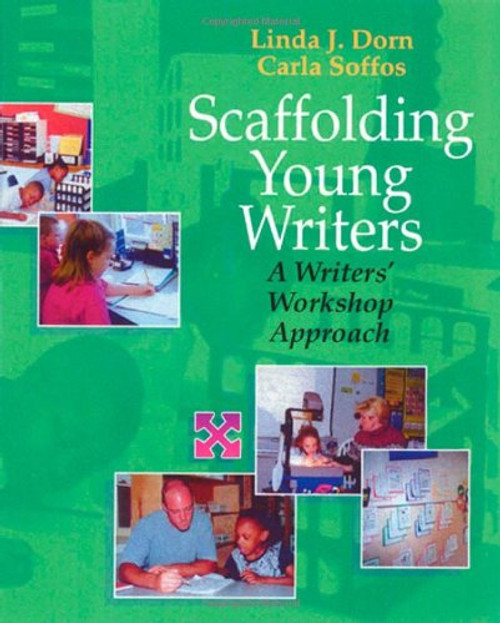The goal of teaching writing is to create independent and self-motivated writers. When students write more often, they become better at writing. They acquire habits, skills, and strategies that enable them to learn more about the craft of writing. Yet they require the guidance and support of a more knowledgeable person who understands the writing process, the changes over time in writing development, and specific techniques and procedures for teaching writing.
In Scaffolding Young Writers: A Writers' Workshop Approach, Linda J. Dorn and Carla Soffos present a clear road map for implementing writers' workshop in the primary grades.
Adopting an apprenticeship approach, the authors show how explicit teaching, good models, clear demonstrations, established routines, assisted teaching followed by independent practice, and self-regulated learning are all fundamental in establishing a successful writers' workshop. There is a detailed chapter on organizing for writers' workshop, including materials, components, routines, and procedures. Other chapters provide explicit guidelines for designing productive mini-lessons and student conferences.
Scaffolding Young Writers also features:an overview of how children become writers;analyses of students' samples according to informal and formal writing assessments;writing checklists, benchmark behaviors, and rubrics based on national standards;examples of teaching interactions during mini-lessons and writing conferences;illustrations of completed forms and checklists with detailed descriptions, and blank reproducible forms in the appendix for classroom use.
Instruction is linked with assessment throughout the book, so that all teaching interactions are grounded in what children already know and what they need to know as they develop into independent writers.







